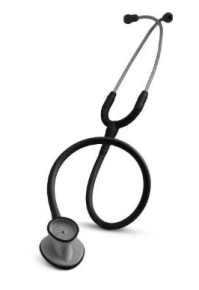New Jersey pharmacy owners know that every New Jersey pharmacy must appoint a Pharmacist-in-charge (“PIC”) and a pharmacy cannot operate without a PIC for longer than 30 days. Below we review some of the many responsibilities that go with the title.
|
|
||||
|
In a newly proposed rule the Office of the Inspector General (“OIG”) is proposing to exclude from the discount safe harbor certain types of remuneration offered by drug manufacturers to Part D plan sponsors and Medicaid MCOs that may pose a risk to the Federal health care programs and beneficiaries. The OIG is also proposing to add two new safe harbors. The first would protect certain manufacturer point-of-sale reductions, and the second would protect certain fixed service fees that manufactures pay to pharmacy benefits managers for services rendered to the manufacturer that meet specific criteria. The New Jersey Board of Pharmacy and the New Jersey Board of Medical Examiners recently adopted new regulations and amended existing ones that effect the way providers practice. The changes concern pediatric immunizations performed by pharmacists and the administration of subcutaneous and intramuscular injections and venipunctures by certified medical assistants. We briefly summarize these recent changes below. New Jersey’s Division of Consumer Affairs is proposing to amend the Prescription Monitoring Program (PMP) to require pharmacies to electronically transmit information about prescriptions filled for gabapentin. Just days after the new e-prescribing rules went into effect, New York’s Commissioner of Health has issued ten blanket waivers that lift electronic prescribing requirements under exceptional circumstances. The waivers will be effective for a year, until March 26, 2017, when the Commissioner will re-evaluate provider and software feasibility and preparedness. When closing a New Jersey pharmacy, to protect patient access to medication and records and minimize the disruption to continuity of care, certain steps should be followed. Recent changes to the New York State Medicaid Program affect vaccine administration for pharmacies, claiming process for nurse practitioners, documentation requirements for transportation providers, and prior authorization for physical and occupational therapists. We summarize these changes. The New Jersey’s Prescription Monitoring Program (NJPMP), aimed at halting the abuse and diversion of prescription drugs, was substantially updated recently to impose new requirements on prescribers of Schedule II drugs and, separately, to stiffen penalties for pharmacists failing to timely report information about dispensing of the controlled dangerous substance (“CDS”). The U.S. Food and Drug Administration (FDA) has recently changed its guidelines for products containing acetaminophen to protect the public against the risk of acetaminophen-induced liver injury. In an effort to curb black market sale of prescription painkillers New Jersey is implementing changes to its paper prescription blanks. These changes represent the first change to the State’s prescription blanks since 2004. The New York State’s Office of the Medicaid Inspector General (OMIG) has released its program of activities for the current fiscal year. As in previous years, the agency’s audit and investigation function remain strong. New Jersey governor Chris Christie recently signed into law changes to existing legislation that would allow qualified pharmacists to administer influenza vaccines to children seven years of age or older. Many of our clients have been unable to contact representatives of the Health Commerce System (HCS) to establish or resolve problems with their Prescription Monitoring Program Registry (Registry) log-in for compliance with the new I-STOP law. Recently, the Department of Health (DOH) commented on the delay. New York’s Internet System for Tracking Over Prescribing (I-STOP) legislation that, among other things, mandates prescribing practitioners to consult with the prescription monitoring registry prior to prescribing a controlled substance, will go into effect on August 27, 2013. Below we discuss some of the I-STOP implications for pharmacists. Certified pharmacists are required to comply with specific reporting requirements. In our third and last article of this series, we discuss some of those requirements below. Pharmacists certified to administer vaccines must comply with specific standards and procedures issued by the Department of Health. In part two of our series analyzing the requirements imposed on pharmacists for vaccine administration, we discuss some of those standards and procedures. Since 2008 certified pharmacists in New York have been authorized to administer vaccines. Today we begin a three part series of articles that examines pharmacists certification requirements for immunization administration, the standards and procedures required for such administration, as well as the State reporting requirements. Provider Alert: New York has a series of drug prescription laws that impact medical and pharmaceutical providers. We highlight those provisions below in chronological order. Pharmacies registered with the New York Education Department Office of the State Board of Pharmacy (Board) have a duty to report certain changes in their business operations. We briefly discuss these requirements below. The New York State’s Office of the Medicaid Inspector General (OMIG) recently released the agency’s 2012-2013 workplan. The agency’s focus remains firmly on fighting fraud, waste and abuse, compliance and self-disclosure, and provider education. We look closer at how the OMIG plan impacts pharmacy and durable medical equipment (DME) businesses. |
||||

